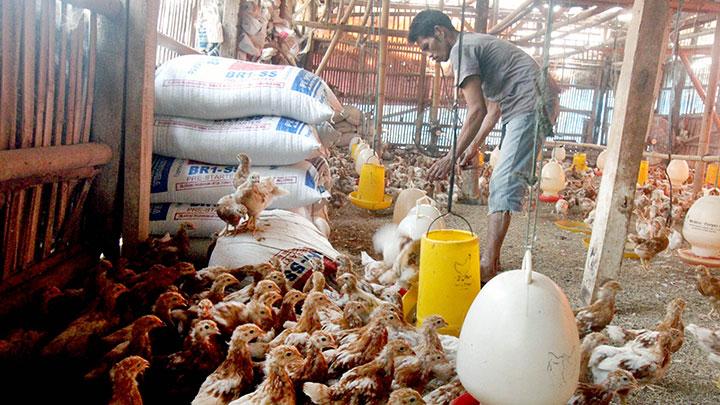Time to End the Monopoly
Translator
Tempo.co
Editor
Laila Afifa
Kamis, 20 Agustus 2020 13:46 WIB

TEMPO.CO, Jakarta - Major companies control the national chicken meat industry. They still make profits when prices fall.
THE cycle of chicken prices that rise and fall like a rollercoaster shows that something is not right with the poultry industry, especially since this has been the case for decades. It is actually easy to guess the reason: after all, it is an industry that has long been controlled by a small number of companies. They are the ones who control supplies and prices.
The government must stop this practice so that the public and poultry farmers do not continue to lose out: when prices rise, consumers suffer, while when prices drop, poultry farmers make a loss. Conversely, companies that control the industry continue to make a profit both when prices rise and fall.
All this is because the government allows companies to control the industry from top to bottom. They import chicks, then supply them to farmers along with vaccines and feed. They then buy these chickens from the farmers and sell the meat on the market. At first glance, this integrated business approach seems fine, but it conceals serious inequalities.
Let us start at the beginning. Companies import day-old chickens (DOC) categorized as grandparent stock (GPS) or broiler chicks. These are brought in from overseas based on the import quotas awarded by the ministry of agriculture. This year the quota was 650,000 chicks. Charoen Pokphand Indonesia and Japfa Comfeed Indonesia Control around 70 percent of the poultry market.
With domestic demand for chicken at around 3.2 million tons per year, this is a tempting business. It appears that poultry farmers do not need to worry that they will be unable to sell their chickens because they are almost certain to be bought by companies at prices that have been set beforehand. But in fact, they are in a weak position.
If the price of chicken in the market increases, the profits to poultry farmers do not automatically rise because the price of chicken feed also increases. Conversely, if prices drop, they also suffer since they have to cover the difference between production costs and the sale price. Meanwhile, the companies continue to make profits of trillions of rupiah because of the profit margins from selling chicks, feed, and vaccines to farmers. For example, Japfa's net profits in 2014 were Rp340 billion, while last year rose to Rp1.9 trillion.
The structure of the market that is oligopolistic at the upstream end and oligopsonistic at the downstream is made worse by the practices that the Business Competition Supervisory Commission ruled were a cartel in 2016. When the price of chicken fell, 12 companies agreed to reject parent stock (PS) chicken. As a result, the price of final stock DOCs rose. In order to stay in business, poultry farmers had no choice but to buy those stocks at a price that had been increased.
But the government learned nothing from this, or from the fall of the chicken price at the start of the Covid-19 pandemic and the huge increase of the price in June, about the need to reform the industry. The government failed to see that they could use the Prohibition of Monopoly Practices and Unhealthy Business Competition Law, which clearly bans one company or a group of companies from controlling all aspects of a business.
The government also needs to push companies to produce the grandparent stock's chicks in Indonesia so that imports are no longer needed. It is right to ask why the import quota system is being perpetuated, given all the corruption cases involving import quotas for a number of commodities. It is possible certain people are looking to make an easy profit from this practice.
Read the Complete Story in Tempo English Magazine



















